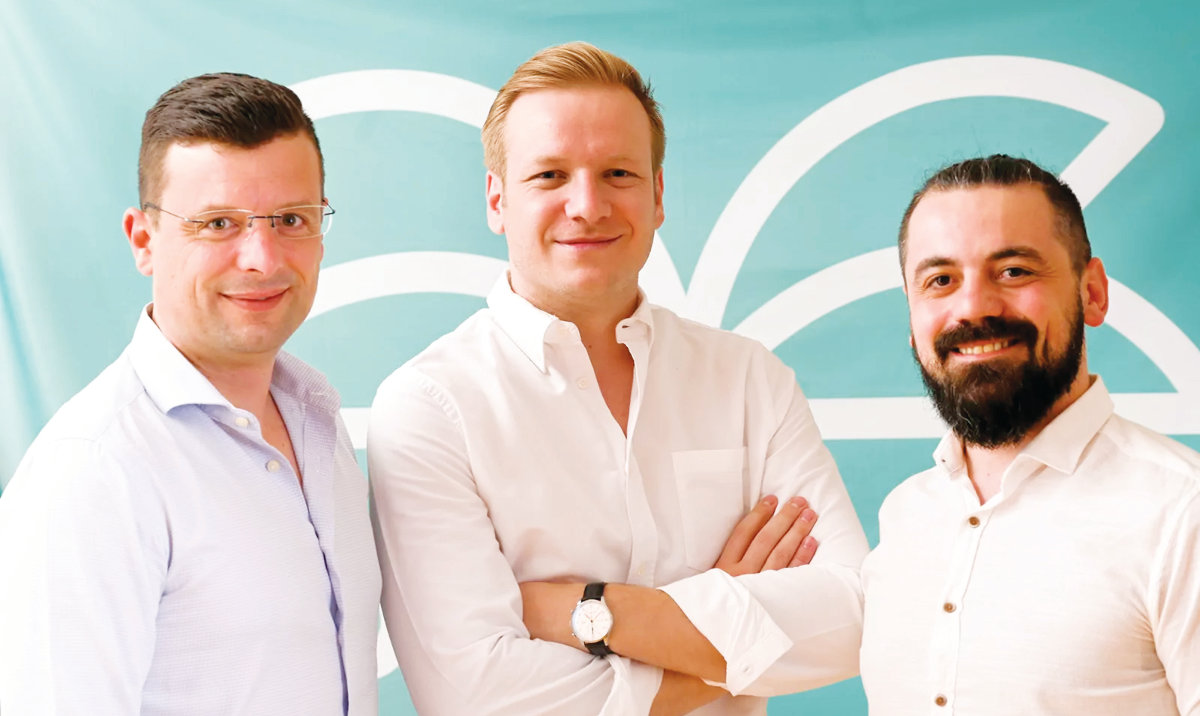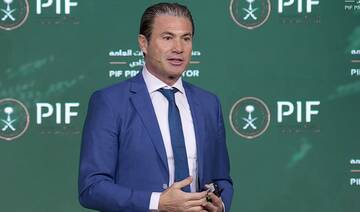CAIRO: Saudi Arabia’s startup ecosystem took a giant leap in the world of funding and venture capital with seven investment firms earmarked $636 million to stimulate innovation and entrepreneurship in the Kingdom.
The announcements were made during the LEAP2023 held in Riyadh last week. Saudi and regional venture capital firms launched massive funding programs to support startups in the region.
Saudi-based venture capital firm STV launched its first fund worth $150 million for alternative financing compatible with the Shariah law while Riyadh-based IMPACT46 also announced a $133 million fund, which targets emerging technology companies in the Kingdom and the Middle East.
Another Saudi venture capital firm, Merak Capital, launched a fund valued at $53 million.
Announcements at the event also included Rakeza’s venture capital fund backed by a global business accelerator in Riyadh valued at $25 million as well as Saudi venture builder BIM Ventures’ $100 million fund in partnership with Al-Sulaiman Group.
UAE-based venture capital firm Shorooq Partners launched a fund estimated to be worth $115 million to accelerate electronic games in the region while investment firm Planetary Capital floated the first Saudi-Canadian corpus to invest in emerging space technology companies, both local and global, amounting to $30 million.
Saudi venture capital firm Flat6labs also dedicated approximately $20 million to its Startup Seed Fund which aims to invest in early stage startups. Saudi Aramco announced that additional funds had been allocated by the company to Wa’ed Ventures, increasing the size of its Kingdom-focused venture capital arm from $200 million to $500 million.

Saudi-based palm.hr closed a $5 million funding round on Wednesday. (Supplied)
LEAP 23 also witnessed open-banking platform Tarabut Gateway signing a deal with Tamam, a Saudi micro-lending provider.
Nana secures $133m in its cart
Nana, Saudi Arabia’s dark store grocery delivery startup, raised $133 million in a series C funding round last Wednesday led by Kingdom Holding Co. and Uni Ventures with participation from other investors.
Established in 2016, Nana is a digital grocery shopping platform in the Kingdom that operates in a dark store model whereby orders are delivered to customers within 15 minutes.
“This milestone will serve as a motivator for us to strengthen Nana’s position as the leading company within the region, as the success of this round heavily supports our expansion plans and continuity toward the provision of more diversified services that serve all stakeholders,” Sami Alhelwah, CEO of Nana, said in a statement.
The company plans to utilize its funding to add more diversified services as well as expand its presence in the region.

This milestone will serve as a motivator for us to strengthen Nana’s position as the leading company within the region.
Sami Alhelwah, CEO of Nana
Sultan Holding, Al-Jasser Holding, Red Diamond Co., Dallah Al-Baraka Group, and Al-Jammaz Holding took part in the funding round.
HR tech platforms
Saudi-based human resources technology platform palm.hr closed a $5 million pre-series A funding round on Wednesday to accelerate regional expansion.
Founded in 2019, palm.hr delivers a streamlined and intuitive work experience for teams handling onboarding, vacation tracking, and payroll operations.
“With the backing of our investors, we are excited to kick off our next stage of growth and play a role in contributing to the future of the region’s economy,” said Richard Schrems, CEO and co-founder at palm.hr.
The company will also utilize its funding to scale up its product offering as well as hire to support its customer acquisition journey.
The funding round was co-led by venture capital firms Speedinvest and RAED Ventures with participation from Wamda Capital.
Another Saudi-based HR technology startup, Marn, closed $1 million in a post-seed funding round last Thursday led by Sukna Ventures with participation from Al-Majdia investment.
Established in 2017, Marn utilizes artificial intelligence and machine learning to provide recruitment solutions as Saudi Arabia’s first flexible work platform.
“With the tremendous growth of the local economy, there is a need for providing innovative recruitment solutions to keep up with it,” said Mohammad Al-Sabeeh, founder and CEO of the startup.
Based in Riyadh, the company will use its new investment to expand its team and customer base as well as create more opportunities for job seekers.
Healthtech platform
Egypt-based healthtech platform Yodawy raised $16 million in an initial close of its series B funding round on Thursday co-led by Delivery Hero Ventures, the venture capital firm of global food delivery platform Delivery Hero, and Global Ventures, a UAE-based venture capital firm.
Founded in 2018, the healthtech startup offers a marketplace where patients can process prescriptions and place an online order for medicines.
The platform has processed over 4 million prescriptions to date and partnered with 20 health insurance companies, 3,000 pharmacies, and more than 300 corporates in Egypt while raising a total of $24.5 million to date.
The company plans to use the fresh funding to drive the growth of its signature Care Program for chronic patients, continue to automate its operations as well as support its regional expansion strategy.
Moreover, Kuwait’s online flower and gift delivery platform Floward closed $156 million in a pre-IPO series C funding round on Tuesday led by Aljazira Capital, Rainwater Partners, and STV.
The company will use its funding to expand its gifting verticals and enhance its customer experience using AI and machine learning as well as ramp up its acquisitions and mergers activity.
Bahrain’s fintech Aion Digital closed a $5 million bridge round last Thursday led by Fintactics Ventures, which is a $40 million fintech-focused venture fund launched during the LEAP23 event in Riyadh.
Founded in 2017, Aion provides an API-based digital banking platform, enabling its clients to create personalized digital products to increase customer engagement.
Aion recently opened offices in the Kingdom and plans to utilize its funding to expand its presence across the region.
















